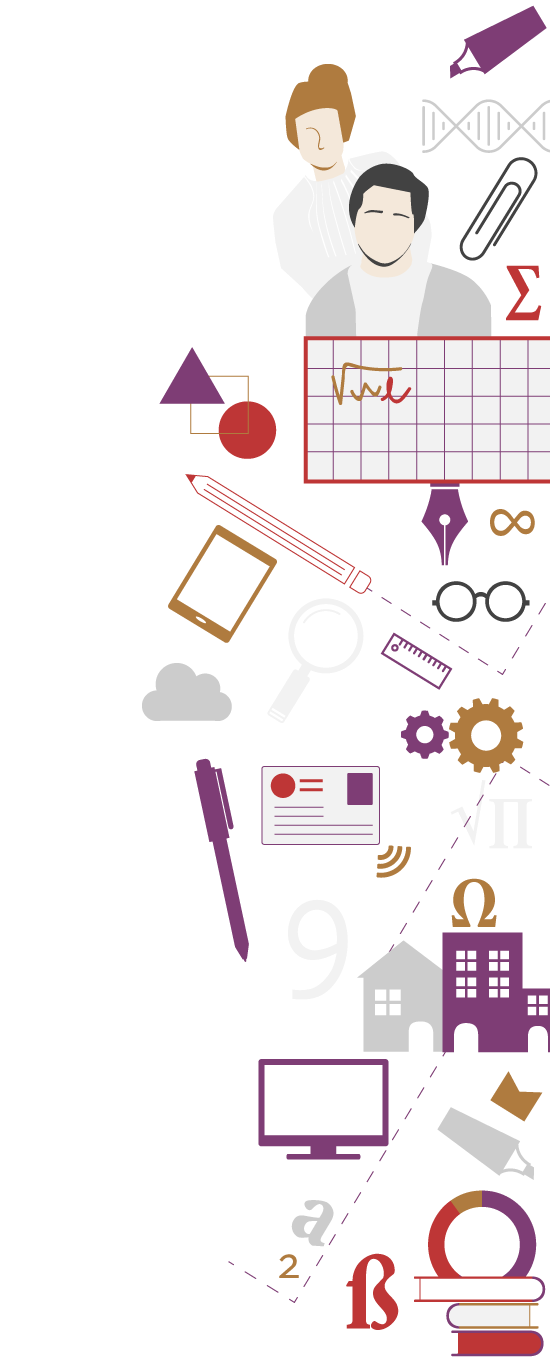
The Italian education system
The “3+2” university reform has changed the traditional framework of Italian university qualifications and now prospective undergraduates have a wider range of degree courses to choose from.
The reform enables students to personalise their own university career according to their cultural and professional expectations.
This organisation, according to the ECTS (European Credit Transfer and Accumulation System), introduces the “credit” (CFU) as the unit of measurement which defines the student workload, including time spent attending lectures, seminars, independent study, examinations, etc. One credit corresponds to 25 hours of study.
Bachelor's degrees
Laurea
This degree gives students basic theoretical preparation and an adequate command of general scientific methods and contents, in addition to the acquisition of specific professional know-how. It requires 180 credits, which can generally be accumulated within three years. The laurea (1st cycle degree) grants access to competitions for the Italian civil service, state-regulated and non-state-regulated professions, and to 2nd cycle degree courses. Graduates are awarded the qualification of dottore.
The corresponding qualification, not only in English-speaking countries, but now also in the whole area of the Bologna Process, is Bachelor’s level degree.
See more...
Single-cycle degrees
Laurea magistrale a ciclo unico
This degree course runs as a single cycle; the degree is awarded at the end of five or six years and requires 300-360 credits. These courses are one-tier degree courses, without intermediate exit, and are in alternative to the two-tier degree course scheme. They are usually adopted in order to prepare for EU regulated professions (e.g., medicine and surgery, veterinary medicine, pharmacology). The laurea magistrale a ciclo unico grants access to competitions for the Italian civil service, state-regulated and non-state-regulated professions, research doctorate programmes and all other degree courses of the 3rd cycle. Graduates are awarded the qualification of dottore magistrale.
See more...
First-level short specialisation degrees
Master universitario di primo livello
These courses lead to an out-of-mainstream university qualification; they can be accessed after a 1st cycle degree course or a comparable foreign degree. They last at least one year and involve the acquisition of at least 60 credits.
The corresponding qualification does not give access to 2nd or 3rd cycles. The latter degree course is also clearly different from the usual master degree, which – not only in English-speaking countries but also in the whole area of the Bologna Process – corresponds to the Italian laurea magistrale.
See more...
Master's degrees
Laurea magistrale
This qualification is open to graduates with a Bachelor's degree or equivalent and requires 120 credits, which can be accumulated over an average of two years. Previous specific curricula in the Bachelor's degree are required for admission. Second-cycle studies aim at providing students with an advanced level of education for highly qualified work in specific areas. Graduates are awarded the qualification of dottore magistrale. The laurea magistrale grants access to competitions for the Italian civil service, state-regulated and non-state-regulated professions, research doctorate programmes and all other degree courses of the 3rd cycle. The corresponding qualification, not only in English-speaking countries but now also in the whole area of the Bologna Process, is Master’s level degree.
See more...
Second-level short specialisation degrees
Master universitario di secondo livello
These courses lead to an out-of-mainstream university qualification and can be accessed after a 2nd cycle degree course, single cycle degree course or comparable foreign degree. They consist in quite advanced scientific courses or studies in life-long learning programmes, last at least one year, and involve the acquisition of at least 60 credits.
This degree-course is therefore clearly different from the usual master degree, which – not only in English-speaking countries but also in the whole area of the Bologna Process – corresponds to the Italian laurea magistrale.
See more...
Doctoral degrees - PhD Programmes
Dottorato di ricerca
This doctorate confers the skills required to undertake research in universities as well as within the private and public sectors. Applicants must be in possession of a 2nd cycle degree (laurea magistrale or laurea magistrale a ciclo unico). They are also required to pass an entrance examination. The whole degree course generally lasts three years, and corresponds to the Doctoratein English-speaking countries.
See more...
Specialisation Schools
Scuole di specializzazione
These schools enable graduates to practice chosen professions and to use the title of specialista (specialist). Admission usually requires students to obtain a specific laurea magistrale or laurea magistrale a ciclo unico (or a comparable foreign degree) and to pass a selective examination. Course length varies in relation to subject fields. They are devised to provide students with knowledge and abilities required for highly qualified the professions (e.g., cardiology, oncology).
See more...
Out of mainstream education
Professional courses
Corsi di perfezionamento
These are geared towards students with a degree who wish to engage in further training. At the end of the course students receive a certificate of attendance.
See more...
Higher training courses
Corsi di alta formazione
These courses are geared towards people who already work, or who have embarked on a career. To take these courses students must have a degree (a traditional five-year degree or a newer “3+2” degree) or a high-school diploma.
See more...


